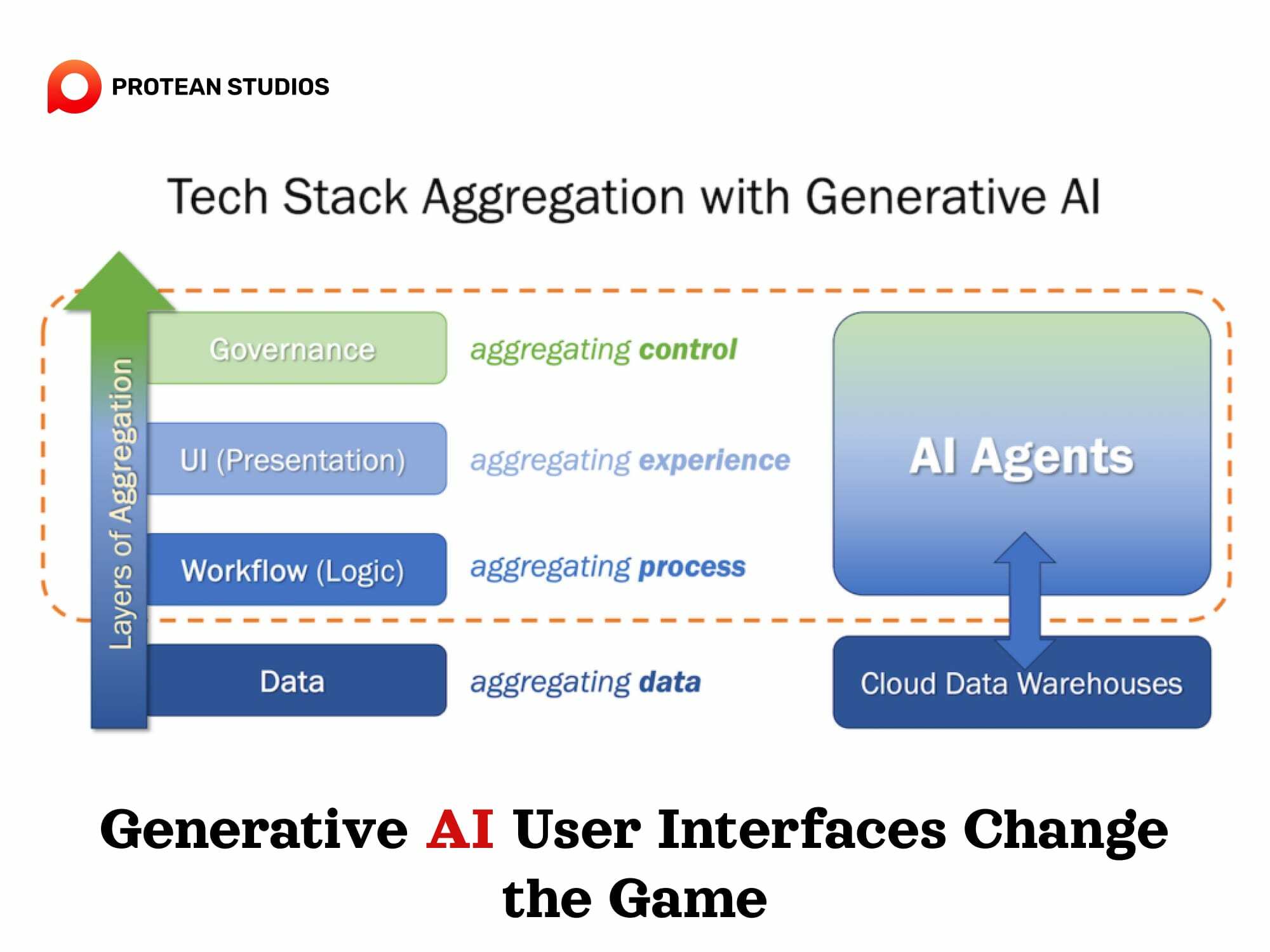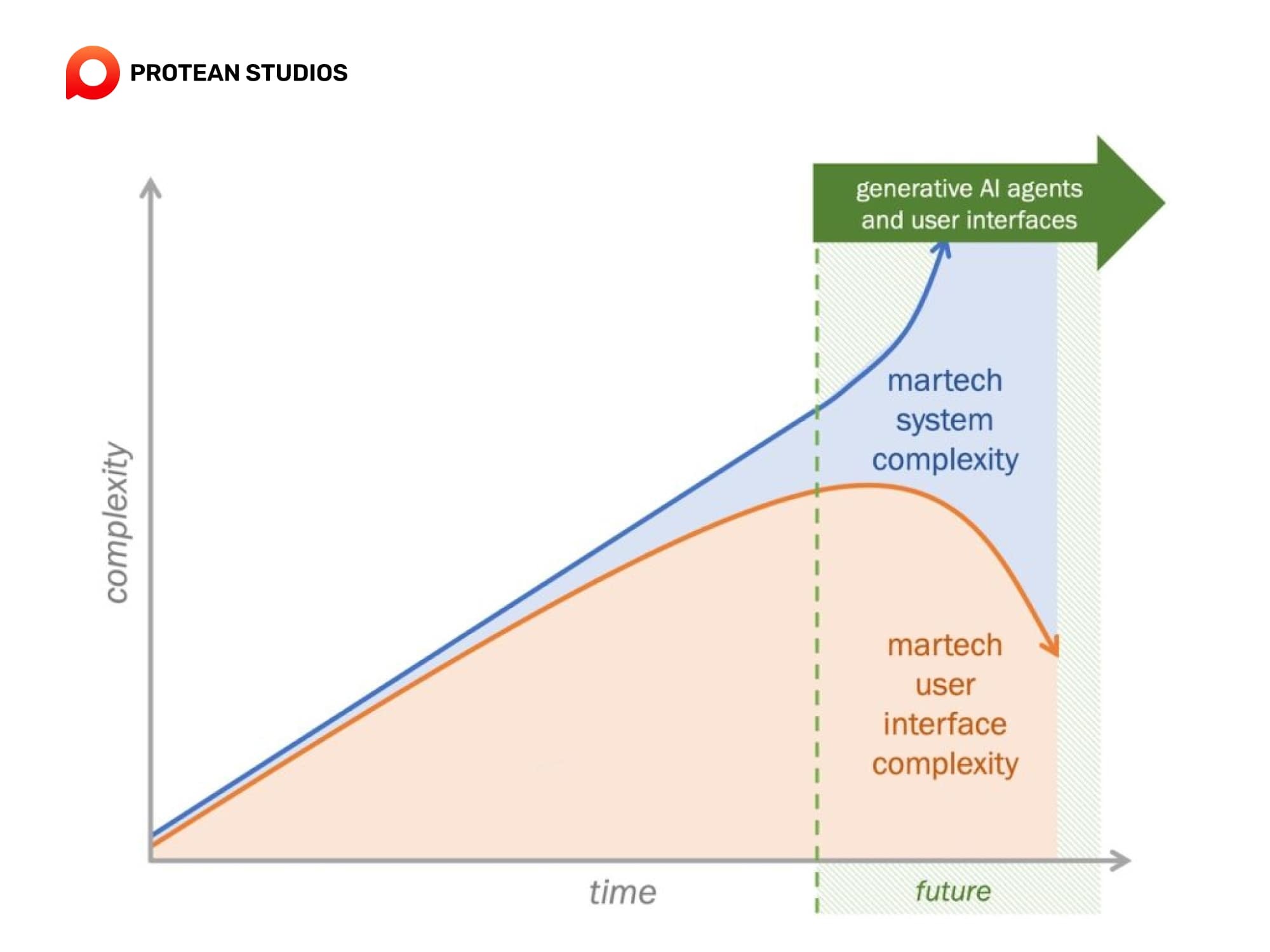For years, marketers have grappled with the ever-increasing complexity of marketing technology systems. These powerful tools promise to streamline workflows, personalize campaigns, and deliver data-driven insights. Yet, the labyrinthine interfaces and steep learning curves often leave marketing teams feeling overwhelmed and frustrated.
This article marks a turning point in the martech landscape. We'll explore the surprising divergence between the growing complexity of martech systems themselves and the user experience (UX) designed for marketers who interact with them.
Growing complexity has been a constant for the past two decades
1. Look back at the past
For the many years that I’ve been covering martech on this blog, the complexity of martech has increased. This rise in complexity isn't due to the explosion of the marketing technology landscape—now boasting over 13,000 products—but also a reaction to the growing intricacies of marketing itself.
When customers embraced search, marketers had to adopt SEO to influence both people and search algorithms. With the shift to mobile, marketers had to develop apps, responsive web design, push notifications, SMS campaigns, WhatsApp strategies, and geofencing techniques.
Social media's rise—encompassing Facebook, Twitter/X, LinkedIn, Instagram, and TikTok—compelled marketers to engage in social content, social advertising, social customer service, social reputation management, and influencer marketing. The popularity of online video led marketers to focus on video content and advertising, YouTube channels, and Instagram reels.

And that’s only the customer-facing side of Martech. Besides, new marketing approaches like account-based marketing (ABM), product-led growth (PLG), intent-based and digital behavioral marketing, customer journey mapping, and unified RevOps (at the intersection of sales, marketing, and customer success) have emerged, along with ecosystem marketing and more.
These inventions and innovations have advanced the marketing discipline, but they've also increased its diversity and scope. The myriad new elements, all interacting, have grown marketing's complexity.
Other article: Marketing Software: Examining Features, Advantages, And Pricing In 2024
2. Present Complexity
Martech systems, comprising the various software components in your martech stack, have evolved in complexity as a reflection of modern marketing's inherent intricacies. Even if you opt for a bundled suite of apps over a best-of-breed tool combination, you can't escape the continuous influx of new features and functionalities designed to meet your ever-expanding requirements and responsibilities.
It might seem obvious that as martech systems grew more complex, their user interfaces also became more intricate. Whether navigating through an endless array of browser tabs for various martech apps or searching for specific options within a vast marketing cloud, the cognitive load required to complete any single task became a significant mental burden.
This complexity has been a major factor in declining martech use rates. As marketing grew more complex, martech systems followed suit, and the user experience (UX) of these systems became complicated. It was a tautology:
Marketing Complexity = System Complexity = UX Complexity
Although some martech products have invested in better UX to gain a competitive edge, even the best have struggled against the tide.
But could a new innovation reverse this trend of increasing UX complexity?
Generative AI user interfaces change the game
As systems become more intricate, the difficulty of managing and interfacing with them increases. This has often acted as a bottleneck, constraining the potential of what can be achieved. But there's a new player in town that's changing the game: generative AI user interfaces.

Generative AI represents a paradigm shift in how we interact with complex systems. By leveraging artificial intelligence, these interfaces can understand and predict user needs, simplifying the interaction process. They can generate content, code, or designs, turning an arduous task into a seamless experience. This is more than just an incremental improvement; it's a revolution that's turning the tide on system complexity.
The impact of generative AI on system complexity cannot be overstated. By removing significant constraints on system complexity, it allows for greater innovation and creativity. Developers can build more advanced systems without worrying about the end-user's ability to interact with them. Users can do tasks that would have been impossible or impractical before, thanks to the intuitive nature of these AI-driven interfaces.
Read more: Top AI And Marketing Automation Tools 2024
Eliminating a major constraint on system complexity
While AI agents reduce martech UX complexity, they will almost increase the underlying martech system complexity.
The limits of how much martech UX complexity humans could handle had become a significant constraint on how much extra martech system complexity could be implemented. There was only so much data, functionality, and combinations of these elements that even expert marketing ops professionals could manage in their heads.
=> Maybe you are interested: Did MarTech Disrupt B2B Marketing?
Humans have many wonderful qualities, but comprehending exponential complexity is not one of them. AI agents excel at processing hundreds, thousands, and even millions of data and functionality combinations and sequences.

As we separate what martech systems can do from the martech UX we use to manage them, underlying system complexity will be free to grow at a much faster pace. This will resemble a steep, exponential curve rather than a gradual increase.
Will this exponential growth in Martech system complexity be beneficial?
Honestly, it's difficult to predict. Humans struggle with understanding exponential complexity. But the likely answer is yes. Why? Because customers and markets are complex, allowing our martech systems to adapt to that complexity with far greater fluidity than we could have ever imagined has the potential to improve the effectiveness and efficiency of marketing.
In summary, the evolution of martech systems and their user experience is at a crucial point. AI agents can simplify the user experience while increasing system complexity. This presents both challenges and opportunities. By finding this balance, we can take advantage of martech systems to meet the demands of modern marketing, driving innovation and success.




